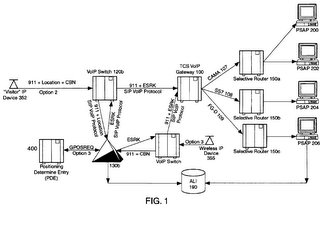
VoIP E911 DEADLINE QUICKLY APPROACHING: The Federal Communications Commission (FCC) order requiring full VOIP E911 service takes effect at midnight tonight.
To comply with the order, PSTN-connected VoIP providers must be able to connect the 911 calls from their customers to a local emergency operator. This entails an interconnection arrangement with a given market's local exchange carrier in order to connect with the PSAPs, or public safety access points. The VOIP provider must also be able to provide emergency operators with a subscriber's call-back number and location information, in case that caller becomes unable to talk.
In terms of enforcement, the FCC's E911 order prescribes fines of up to $11,000 per day per non-compliant subscriber line.
Most VoIP providers currently offer E911 services, but in some cases, the E911 services are not directly connected to the "traditional" 911 system. While VoIP providers have attempted to hard-wire their connections to 911, many have found complete compliance to be extremely difficult within the original four-month timeframe allotted by the FCC.
It will be interesting to see how this will mesh with the 20-or-so issued patents on VoIP E911 protocols, and some 50+ patent applications which I'm sure are causing headaches for VoIP telecom providers. It's bad enough to implement new features in a particular technology under normal conditions; I can't imagine the scrambling that is undoubtedly taking place to implement these features under the relatively short timelines provided by the government (the U.S. Court of Appeals for the D.C. Circuit this week denied an emergency motion for a partial stay of the FCC´s E911 order requiring Voice over IP service providers to provide E911).
Monday, November 28, 2005
Subscribe to:
Post Comments (Atom)





Post a Comment